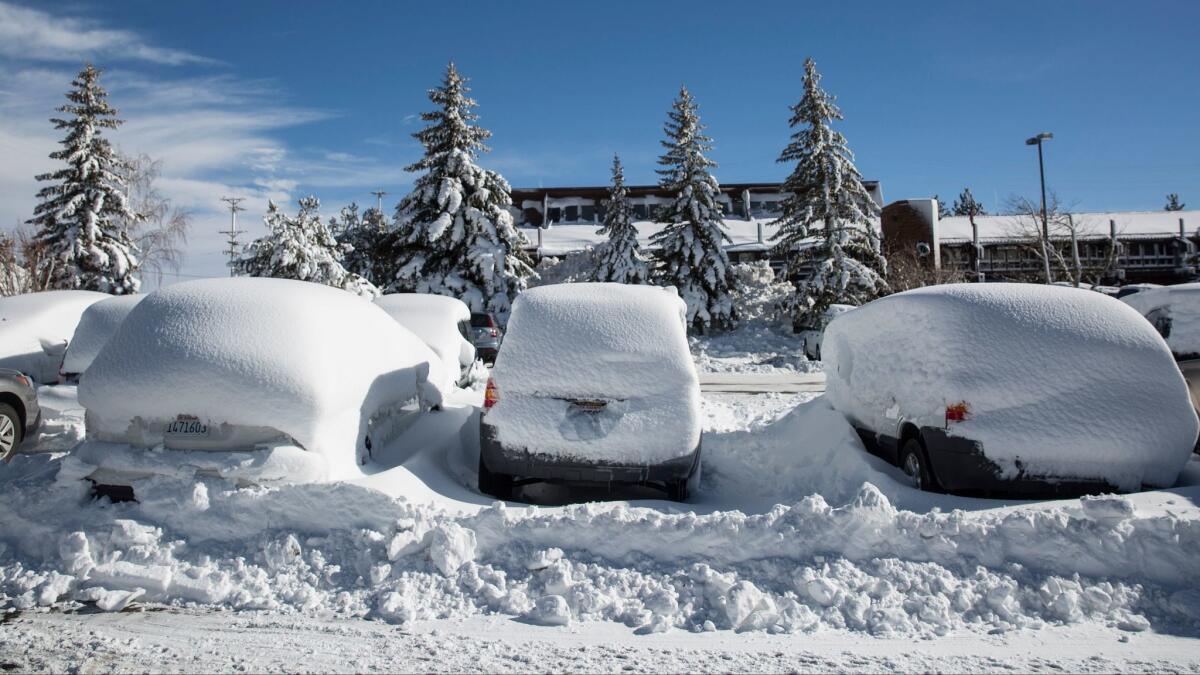California’s stormy winter sets snowfall record for Mammoth resorts — over 20 feet in one month

A set of atmospheric rivers that brought heavy rains and floods to California also dumped a record amount of snow on Mammoth Mountain in January — 20½ feet, the most in the resort town’s history, local tourist officials announced.
“What a time it is to be at Mammoth,” the announcement said on MammothMountain.com, which represents area resorts. “Conditions are all-time, get out there and have the ‘best pow day of your life.’ ”
The mountain has received 246 inches of snow since Jan. 1, blasting through the old monthly record of 209 inches. The resort town has received more than 29 feet of snow since the ski season began last year.
The news underlines what has been a remarkable start to California’s water year, which runs from Oct. 1 to Sept. 30.
October rains were four times the monthly average in many parts of the state, followed by a strong December and an even better January. The Sierra Nevada snowpack, which provides a third of the state’s water when it melts in the spring and summer, is at nearly 200% of average for this time of year.
Many of the state’s biggest reservoirs are full, and much of the northern half of the state is considered to be out of drought conditions.
More storms are on the way, state climatologists said. For skiers in Mammoth and the rest of California, the wintry wonderland may continue.
For breaking California news, follow @JosephSerna on Twitter.
ALSO
Death toll climbs to at least 5 from California’s stormiest winter in years
Ski patrolman dies when explosive charge detonates during avalanche control at Squaw Valley resort
In six months, L.A. went from high and dry to wet and wild. Here’s how it happened
More to Read
Sign up for Essential California
The most important California stories and recommendations in your inbox every morning.
You may occasionally receive promotional content from the Los Angeles Times.











